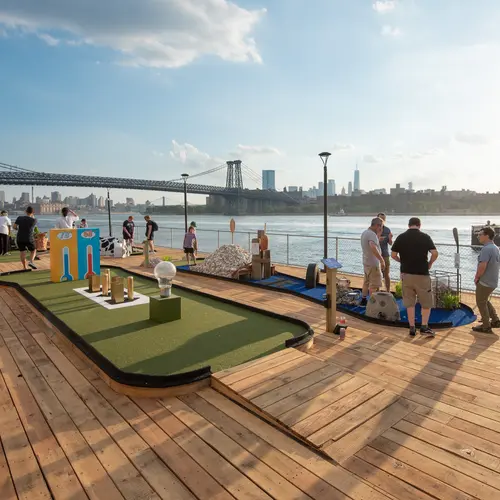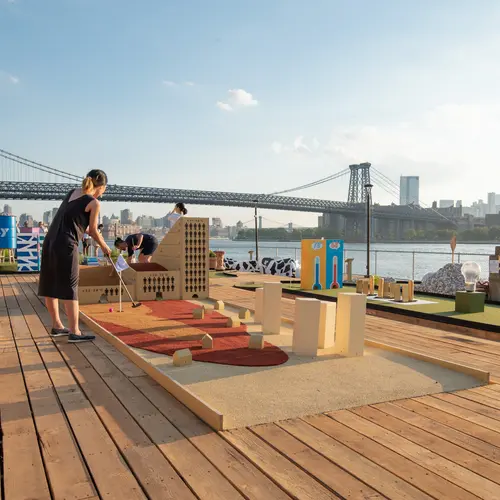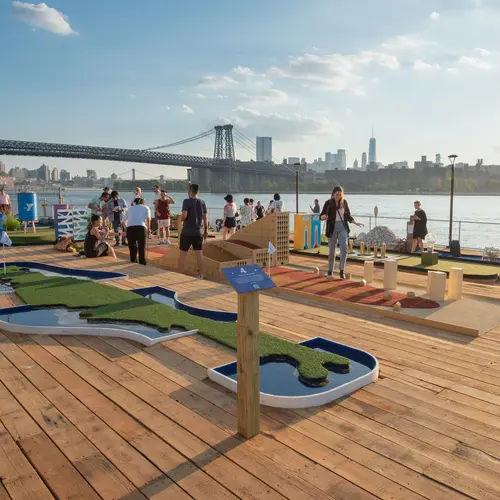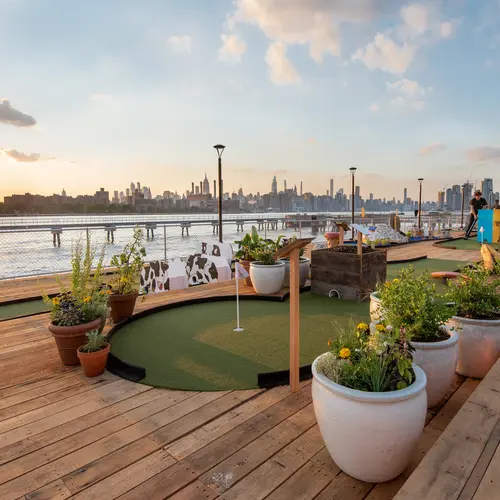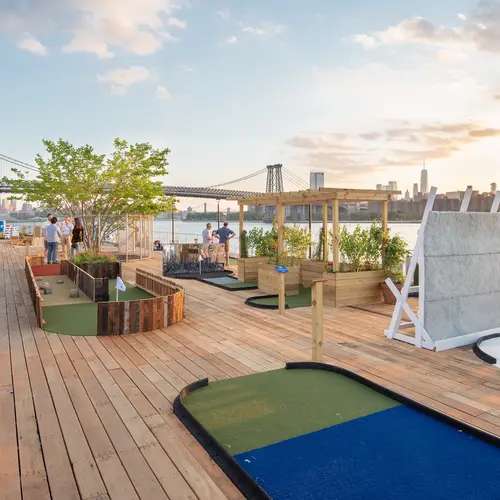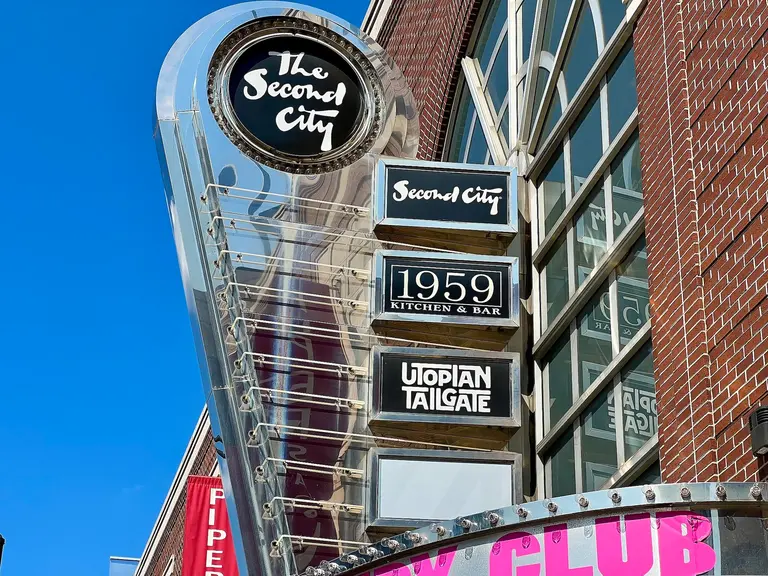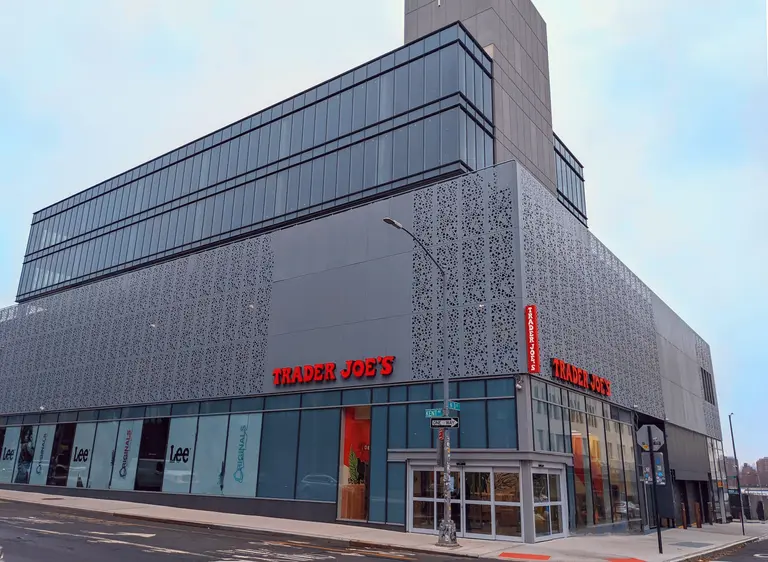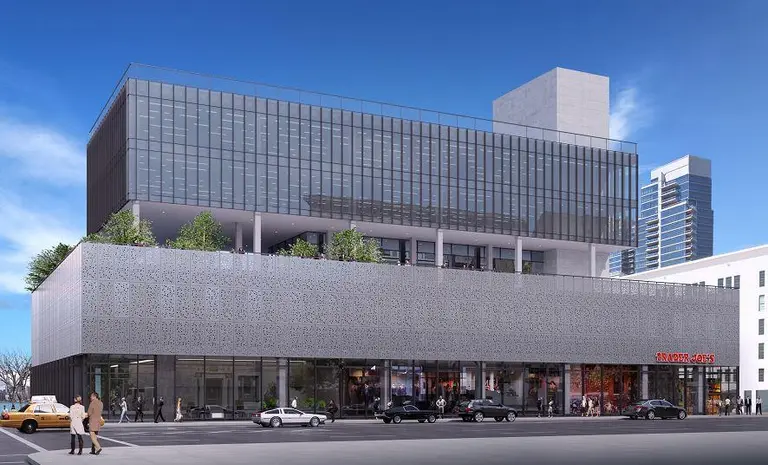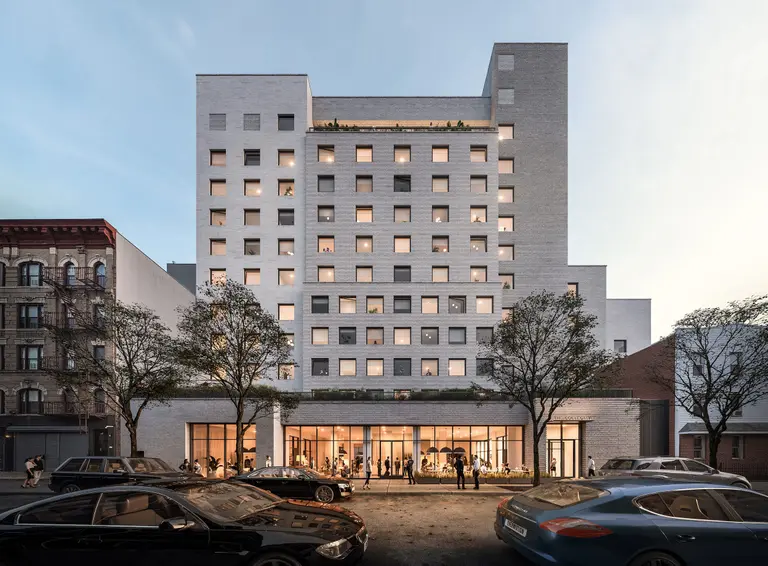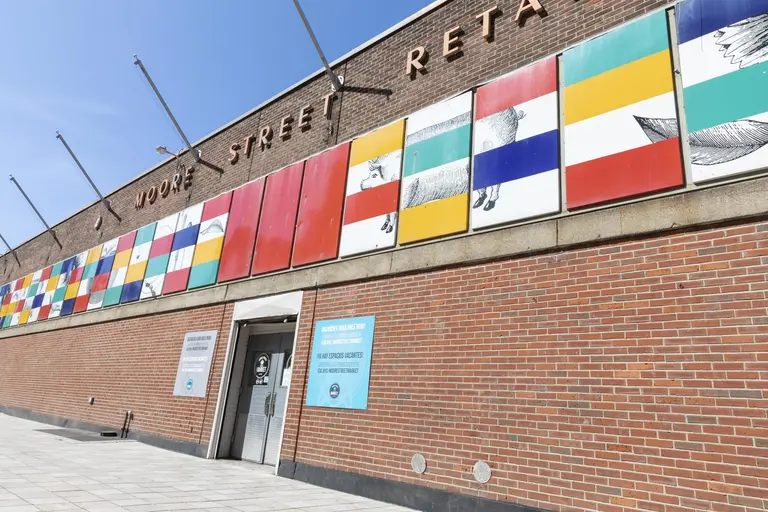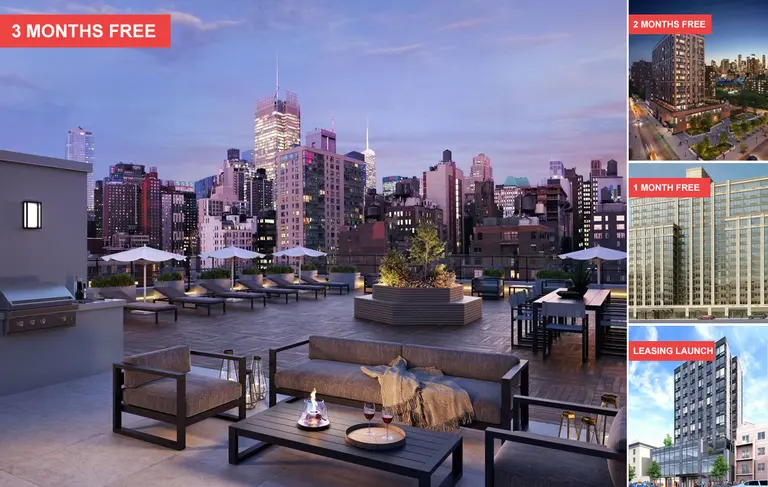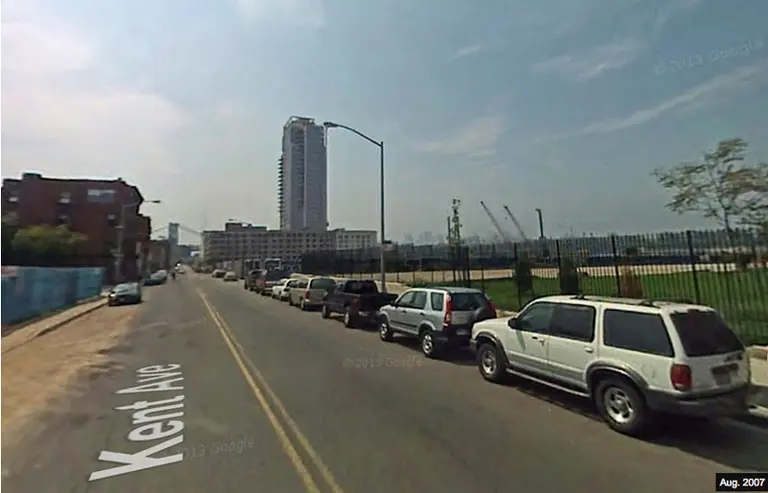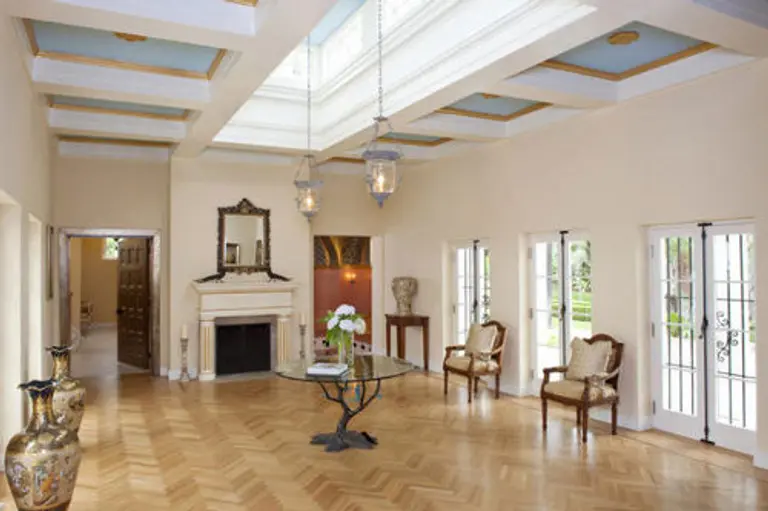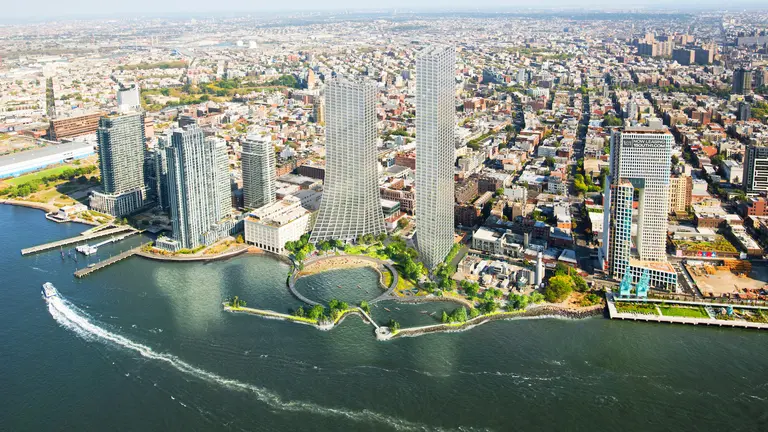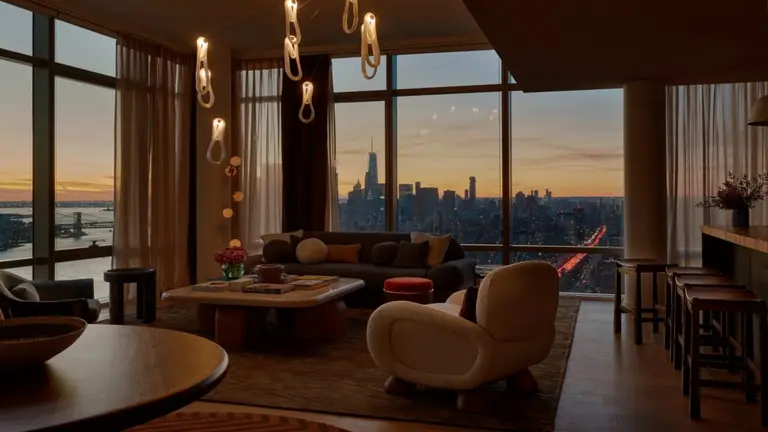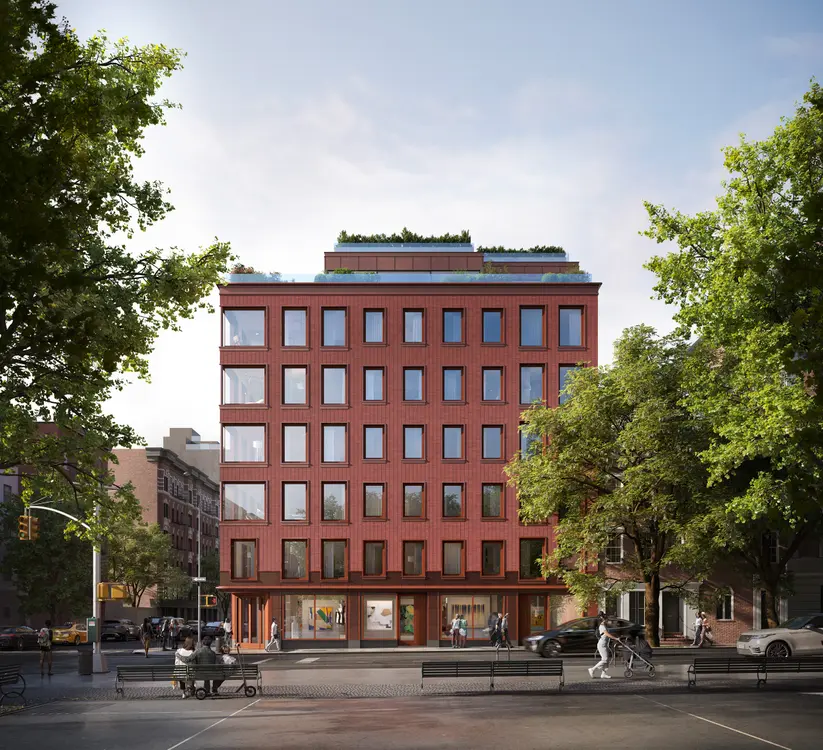Climate change-themed mini-golf course opens at Two Trees’ waterfront site in Williamsburg
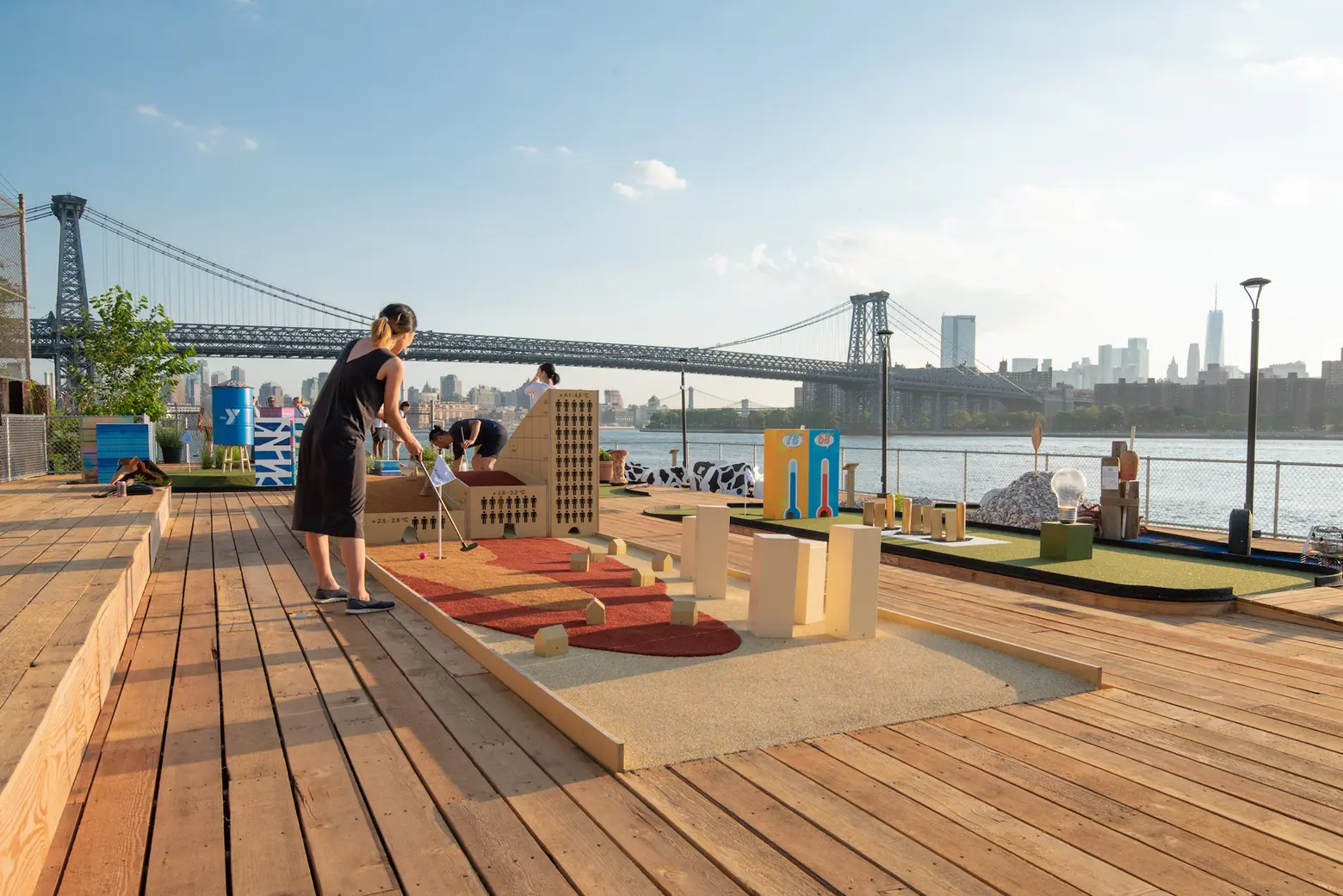
All photos courtesy of Two Trees Management, unless otherwise noted
On the site of a proposed mixed-use development in Williamsburg, a temporary climate change-themed miniature golf course has opened. Two Trees Management on Monday announced visitors can now enjoy Putting Green, an 18-hole course designed by local groups that focuses on sustainability and climate issues, as well as a 25,000-square foot sustainable farm. The pop-up mini-golf course sits on the future site of the developer’s project “River Ring,” which includes two huge towers designed by Bjarke Ingels with more than 1,050 units of housing, a new YMCA, and a public beach.
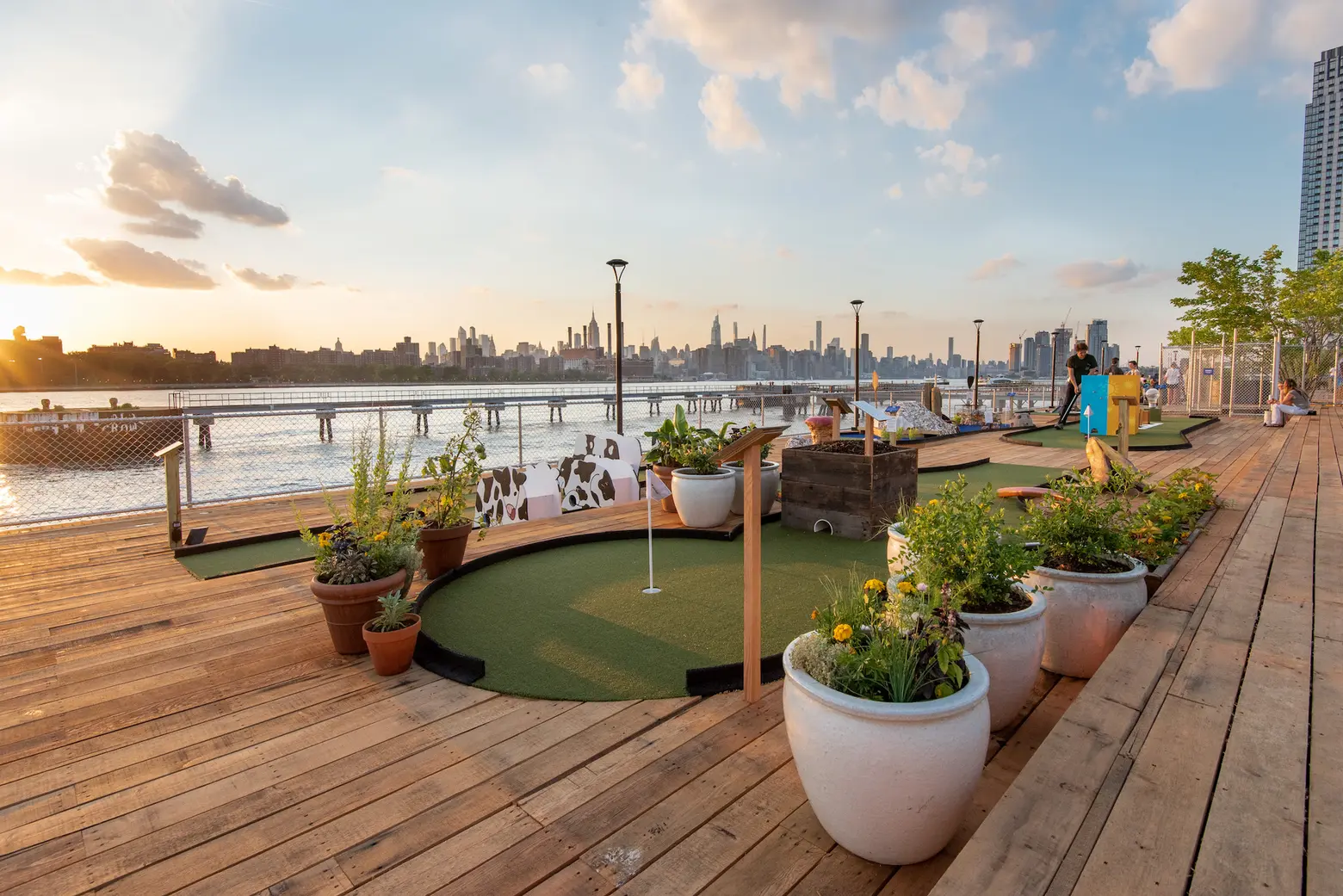
Designed by local artists, architects, and community organizations, every hole showcases a different issue or solution related to the climate crisis, from rising sea levels and coastal resiliency to global displacement and renewable energy.
Environmentally friendly methods were used in the creation of each hole, including the giant globe made of recycled plastic bottle caps and scraps of leftover turf and the curbing around the holes made of recycled tires. The plants at the course also complement the existing “self-seeded” landscape, according to a press release.
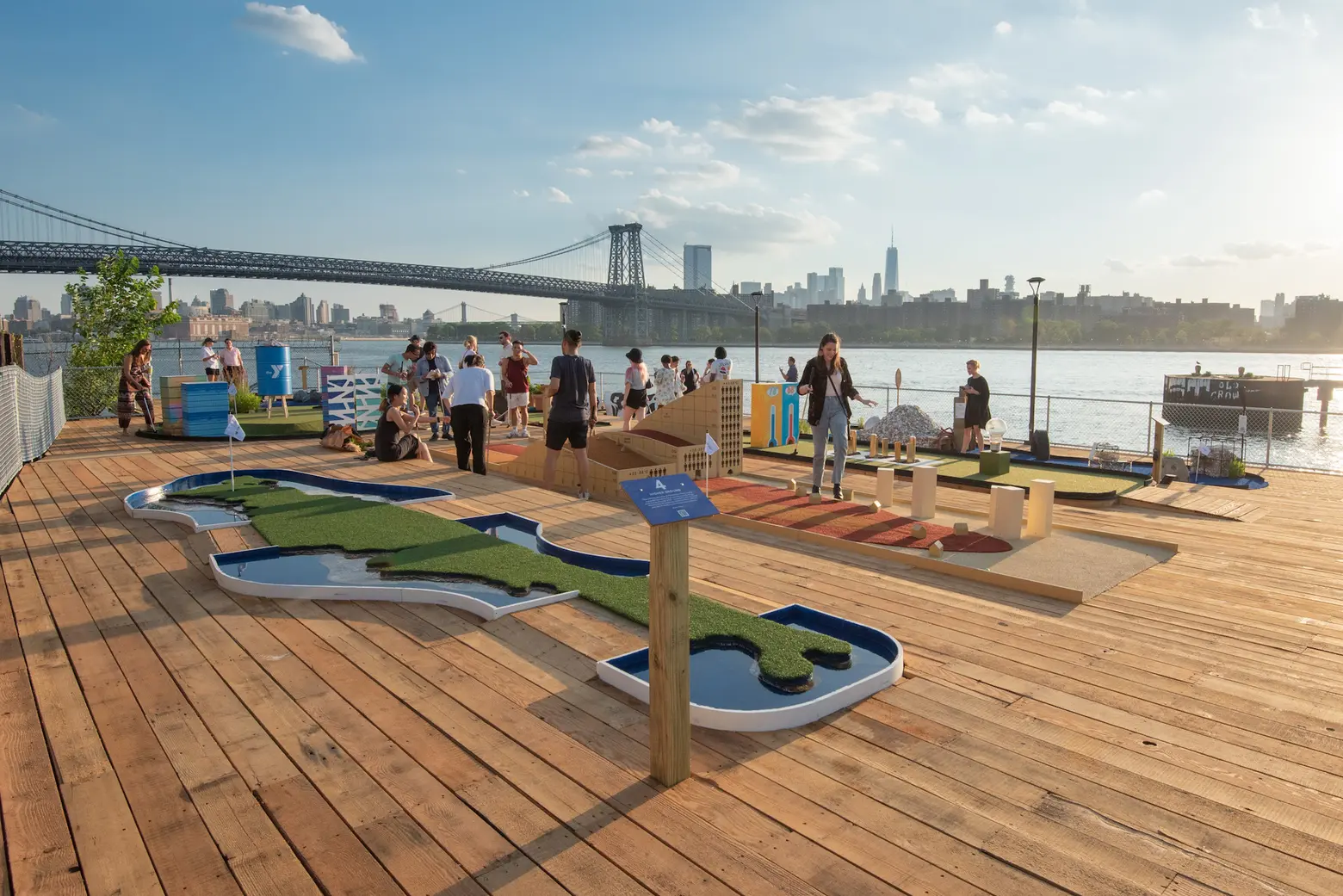
Putting Green is open Monday through Wednesday from 12 p.m. to 8 p.m. and Thursday through Sunday from 10 a.m. to 8 p.m. Admission costs $10 for adults and $5 for kids and seniors. On Wednesdays before 5 p.m. and Saturdays before 1 p.m., tickets cost $5 for adults and $2 for kids and seniors. All profits will be donated to New York City environmental nonprofits, including the Wildlife Conservation Society and the Newtown Creek Alliance.
The River Street Farm Collective is also now open at the waterfront site. The 25,000-square-foot space features: an aquaponic farm by Oko Farms, an organics processing operation, a pollinator meadow by Brooklyn Grange, environmental educational programs from City Growers, an oyster shell drop-off led by the Billion Oyster Project, and an apiary from the Island Bee Project. Food and beverage options will be available in the coming weeks.
“By repurposing this construction space, we were able to partner with local organizations and environmental groups to collectively create a space that the entire community can enjoy, similar to what Two Trees did with Domino Park’s North Brooklyn Farms and the skate park,” David Lombino, the managing director with Two Trees, said in a press release.
“We’re confident that PUTTING GREEN will help facilitate much-needed conversations about how to protect the environment and, even more specifically, the Williamsburg waterfront while still providing a beautiful open space for everyone.”
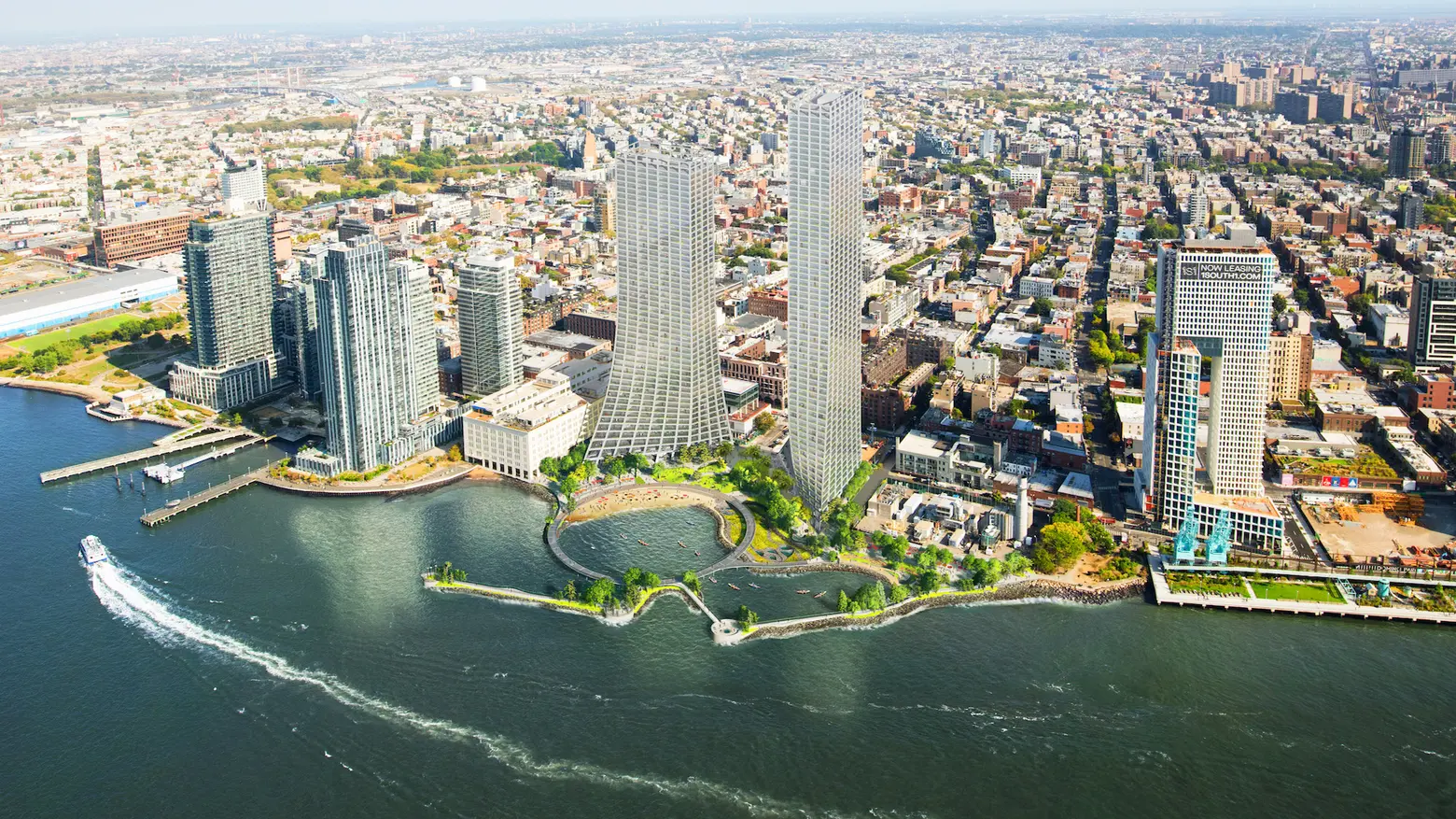
Rendering of River Ring courtesy of James Corner Field Operations and BIG- Bjarke Ingels Group
In late 2019, Two Trees revealed its plan to bring housing and park space to the Williamsburg waterfront, between North 1st and North 3rd Street on River Street. As 6sqft reported in March, the project, which has been revised from towers at 650 feet and 600 feet tall with 1,000 units of housing to towers at 710 feet and 560 feet with 1,050 units.
As part of the affordable housing component, 263 of the apartments would be set aside for those earning 60 percent of the area median income and 27 would be for those earning 40 percent of the area median income. This works out to $1,366/month and $854/month for two-bedroom units.
In addition to the BIG-designed towers, the developers tapped James Corner Field Operations to develop a public park and beach that would connect Grand Ferry Park and North Fifth Park, allowing for uninterrupted access to the East River between South Williamsburg and Greenpoint. The major part of the design, and which the name River Ring comes from, includes a circular esplanade that extends into the water, as well as nature trails, a boating cove, a children’s play area, and a sandy beach.
Two Trees, the team behind the redevelopment of the former Domino Sugar Factory, acquired the three vacant sites for a total of $150 million. The site had been home to Con Edison since 1984, with the steel fuel tanks removed from the site in 2011.
Since a zoning change is required for the project, the River Ring plan must go through the city’s uniform land use review procedure (ULURP), in addition to securing a permit from the Department of Environment Conservation and the U.S. Army Corps of Engineers. Two Trees believes construction could take at least five years to complete. The developers aim to wrap up ULURP by the end of the year.
RELATED:
- Plan for massive towers and public beach in Williamsburg moves ahead with new look
- Massive Bjarke Ingels-designed apartment towers and public beach planned for Williamsburg
- Two Trees exploring a new Williamsburg waterfront park and development next to Domino Park
All photos courtesy of Two Trees Management
